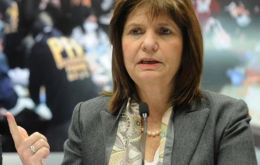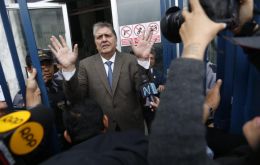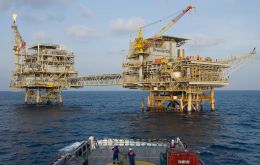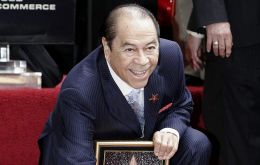MercoPress. South Atlantic News Agency
Latin America
-
Tuesday, November 20th 2018 - 08:52 UTC
Mexican president elect will hold a national consultation on ten key policy proposals

Mexico’s incoming government will hold a national public consultation on Nov. 24-25 for residents to voice their opinion on 10 key policy proposals ranging from a new rail line and oil refinery to reforestation and free public internet initiatives.
-
Tuesday, November 20th 2018 - 06:13 UTC
Saudi Crown Prince bin Salman will attend G20 summit in Buenos Aires

Saudi Crown Prince Mohammed bin Salman will attend the Group of 20 summit in Buenos Aires later this month, Saudi media reported Monday, potentially bringing him face-to-face with world leaders from the United States, Turkey, Canada and European countries for the first time since the slaying of Jamal Khashoggi.
-
Tuesday, November 20th 2018 - 06:06 UTC
G20 summit in Buenos Aires City: Security minister suggests residents leave the city over the long weekend

Argentine Security Minister Patricia Bullrich has warned Buenos Aires City residents that the staging of the G20 Leaders Summit at the turn of the month will make things very “complicated” in the City, telling residents they should use the long weekend to leave Buenos Aires for a few days.
-
Monday, November 19th 2018 - 18:17 UTC
Asylum to Alan García: Why Uruguay?

The Territorial Asylum right under which Peru's former President Alan García seeks to protect himself, investigated by the Justice of his country, is framed in a convention signed in Caracas, Venezuela that provides that every State belonging to the Organization of American States (OAS) has the right to admit “the persons it deems appropriate.” Garcia's hope is based on Uruguay's record of respect for this right.
-
Monday, November 19th 2018 - 16:37 UTC
Uruguay grants asylum to ex Peruvian president Alan Garcia

Uruguay will grant asylum to Peruvian ex-president Alan Garcia, announced the country's foreign minister Rodolfo Nin Novoa on Sunday evening when he was asked about the request. “The answer is yes”, said the minister in Montevideo.
-
Monday, November 19th 2018 - 07:46 UTC
Stranded Le Soleal cruise passengers fly home; Cruise line reviews schedules

The 222 passengers of the stranded Ponant's Le Soleal cruise vessel finally left from Punta Arenas airport over the week end terminating their several days unexpected adventure which started last Wednesday when the vessel suffered damages in attempting to reach the port of Natales, in southern Chile.
-
Saturday, November 17th 2018 - 08:56 UTC
Premier Oil confident in reducing debt; begins drilling in Mexico

Premier Oil said it expected full-year production to come in at the low end of a previously announced 80,000 to 85,000 barrels per day range. The company, with interests in the Falkland Islands and which has been focusing on cutting debts, also said its debt pile would shrink to US$ 2.4 billion by the year-end.
-
Saturday, November 17th 2018 - 06:19 UTC
It's official: ARA San Juan has been found 800 meters deep; next challenge: can she be lifted?

The Argentine Navy confirmed early Saturday morning that the missing ARA San Juan submarine which disappeared in the South Atlantic on 15 November a year ago, with a crew of 44, has been found. The discovery was also announced by the Argentine Defense ministry and the United States company, Ocean Infinity, leading the search for the vessel, and it happens exactly one year and one day after all contact was lost with the vessel sailing from Ushuaia, Tierra del Fuego to its base in Mar del Plata.
-
Wednesday, November 14th 2018 - 12:24 UTC
Bolero legend Gatica passes away at age 90

Chilean-born bolero legend Lucho Gatica, died Tuesday in Mexico City at the age of 90 of undisclosed causes, his family confirmed. “Good trip, I love you ...” wrote his son, Mexican actor Luis Gatica, on social media.
-
Monday, November 12th 2018 - 07:40 UTC
FARC said to be regrouping to resume guerrilla fighting in Colombia

Colombian Armed Forces commanding officer General Alberto José Mejía is aware of the existence of a plan to refund the FARC guerrillas and those behind it would be the group's former leaders, Radio Caracol reported this weekend.
